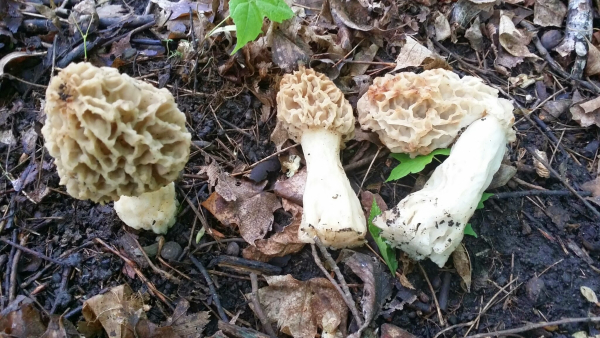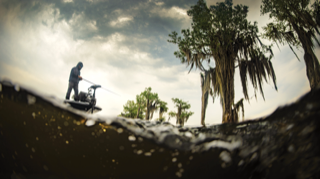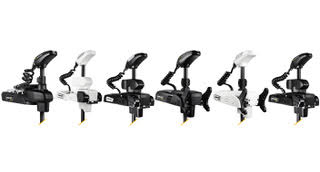DNR produces map of 2015 burned areas to give folks a hand in their hunt for morels
The Michigan Department of Natural Resources provides an online interactive map that highlights the state’s 2015 wildfires and prescribed burns – each more than 10 acres in size – to help mushroom hunters in their quest for morels.
“Morel mushrooms are often found in locations where large fires occurred the previous year,” said Jim Fisher, resource protection manager for the DNR Forest Resources Division. “Each spring we get calls from people who are seeking details on those sites to hunt morels. We’ve enhanced the features of this map to give our customers the information they are looking for in a mobile-friendly, easily accessible package.”
The DNR’s interactive Mi-Morels map provides forest cover type information, latitude and longitude coordinates and state-managed land boundary information.
Morel mushrooms commonly sprout in locations burned by wildfires or prescribed burns with a tree canopy; grass or sunlit open areas are less likely to produce the tasty fungi.
“While the map may provide details on the cover type that was burned, it’s up to the user to investigate whether morel mushrooms are growing at any location on the map,” Fisher said. “Just because a spot is marked on the map, it doesn’t mean morels will be growing at the area identified. We’re providing a resource, but it’s up to the hunters to head out to the forest and see what’s available.”
The information and data in the map on burn locations, state forest cover type, and state-managed land boundaries are available for users to interact with and download via the DNR Open Data portal. This site gives residents and public land users of Michigan access to Michigan DNR spatial data and information.
The Department of Natural Resources is not responsible for the incorrect identification of morel mushrooms. For more information on safe mushroom hunting, visit the DNR’s website.






